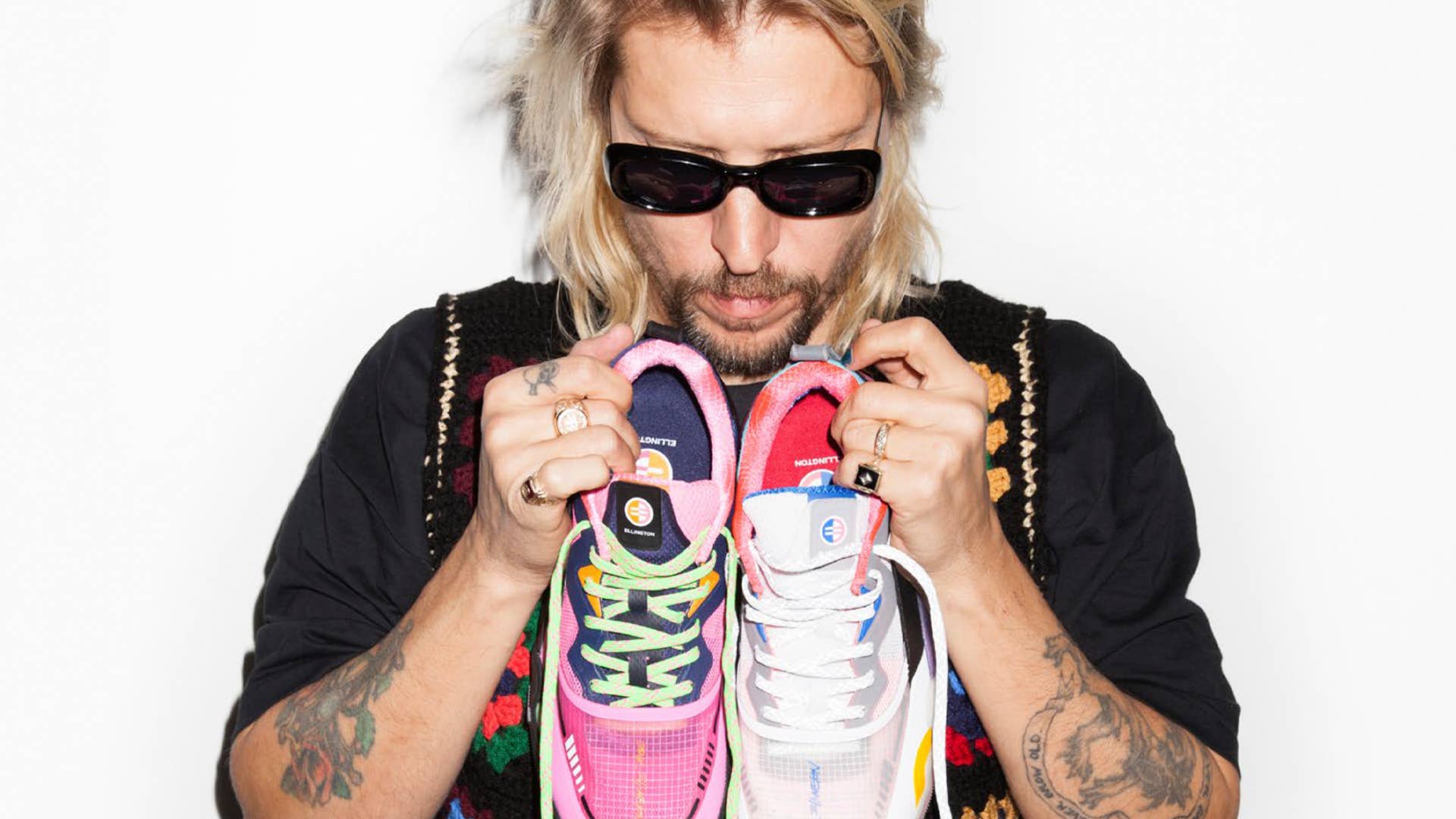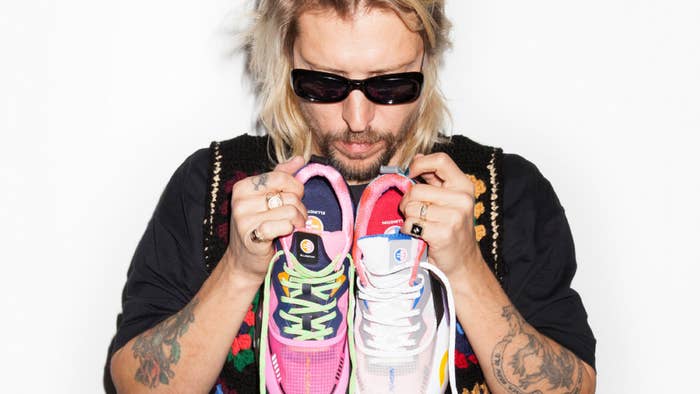
The week before the Chinese sportswear giant Li-Ning launched its inaugural line of skate shoes, pro skateboarder Erik Ellington worked overtime in a small warehouse outside Los Angeles making sure the couple hundred boxes to be sold in the United States made it to the right people on time.
“I’m doing everything for the distribution here in the US,” he says, a few days after a noon to midnight shift, “and that would be a really big goal of mine if this keeps going, you know, because, shit, it’s fun.”
For him, Li-Ning’s success is personal. He helped plan the skate program from its outset, designed the first silhouette, and hand-picked the team and the retailers. Plus, it’s his name that’s all over the shoes, so it’s his reputation as much as Li-Ning’s on the line.
The Erik Ellington Signature Model marks Li-Ning’s first foray into skateboarding, and the beginning of a partnership the $30 billion brand hopes will gain it enough credibility to capitalize on the exploding culture as it takes off across the globe.
Skateboarding might be more popular now than it’s ever been, and its introduction this year as an Olympic sport will only expand its visibility. Its pull in high fashion is more prevalent than ever before, too. Once small, skate companies like Supreme and Palace have ballooned into bellwether brands from which high fashion takes note. See, for just one example, Louis Vuitton’s $1,190 skate shoe designed by Palace’s professional skater Lucien Clarke: skateboarding is at the forefront of fashion, and its potential profitability is off the charts.
None of this has gone unnoticed at Li-Ning’s headquarters in China, where the country’s tastes are deemed in line with international trends.
“There is a strong movement within China’s youth towards street culture,” Li-Ning’s chief of product and marketing officer Hong Uru explains over email, “with skateboarding at its core.”
Li-Ning has launched streetwear collections at fashion weeks in New York and Paris for the last four years, and has seen its market value multiply nearly 14 fold in the process. Since skateboarding, according to Uru, “combines a spirit for sport with lifestyle and fashion, which Li-Ning always strives to represent,” its interest in the space was inevitable.
It already has a model for breaking into American athletics. The lifetime partnership Li-Ning signed with basketball legend Dwyane Wade has helped it gain name recognition in Western markets and attract other rising NBA stars like D’Angelo Russell. Would a similar strategy work in skateboarding? If it wants “credible and as such organic growth globally within the skate community,” as Uru puts it, it’ll need to tap someone well-respected within the culture but visionary enough to see beyond it. In short, Li-Ning needed the Dwyane Wade of skateboarding; they found him in Erik Ellington.
“Erik was always our ideal ambassador,” says Uru. “He is one of the most credible and iconic figures in the skate world, as well as an accomplished creative director.”
Ellington’s credentials are manifold: After a childhood in Alaska and teenage years in Arizona, he broke out into the SoCal skateboard scene with a wild style and slew of gnarlyvideoparts. He fell in with the infamous Piss Drunx, a rowdy crew of Huntington Beach skaters with enough crossover appeal to get written up in Rolling Stone magazine, and helped start Baker Boys Distribution, which now distributes brands as seminal as Tony Hawk’s Birdhouse Skateboards. Meanwhile, he had a distinctive series of signature shoes: two cult classics for Emerica and a half-dozen for Supra, a company he co-founded and sold off in 2015.
Now he’s a veteran, a family man on the straight-and-narrow for nearly six years, still skating and selling skateboards, but dabbling in luxury goods through his high-end Italian loafer brand, Human Recreational Services. He’s a skateboarding workhorse with the backstory, bruises, and businesses to prove it. He checks all of Li-Ning’s boxes with a fat felt pen.
Ellington calls his career “a crash course in how to be a creative director,” with the kind of failure-to-success ratio all too familiar to skateboarders. In 2019, when Li-Ning first approached him about the possibility of a partnership, any initial skepticism he might have had about teaming up with a big and foreign brand was soon dissolved by the alluring scope of almost unlimited creative control he was offered.
“We have this thing as skaters, especially coming from the generation I grew up in, which is like, ‘Don’t trust this, don’t trust that,’” he says, “but sometimes you’re skeptical based on old beliefs.” When he hears criticisms from skaters that Li-Ning isn’t “core,” he shrugs them off as tired cliches.
“It’s been like that forever,” he says, “but, dude,” his speech speeding up with excitement, “they’re doing something that’s so out of the box, and exploring so many different things that for me, at this point in my career, to be able to go, ‘Here’s what I’ve learned for the past 25 years in skateboarding, and here’s where I think a futuristic skate category for Li-Ning looks like.’ And then to be given carte blanche to do that? That’s enough for me.”
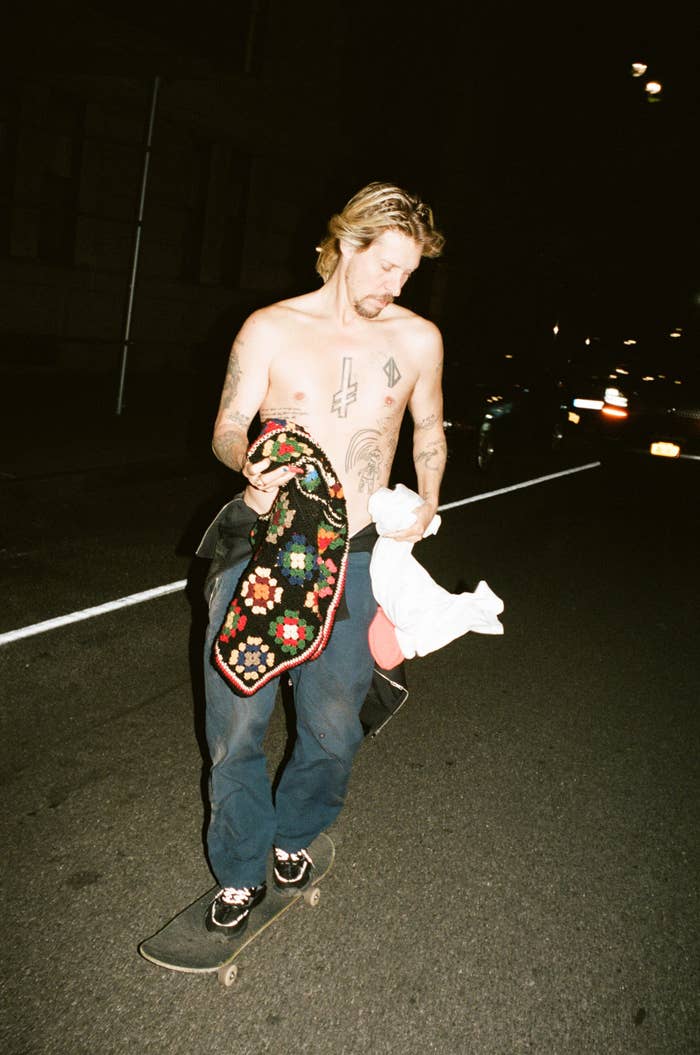
At ComplexCon 2019, he met with more of the Li-Ning team he’d be working with and felt an instant rapport. “Straight from the get, I’ve been treated like family,” he says. They showed him some unreleased bulky basketball shoes literally bursting with novelties—Cordura quarter panels, rubber-stamped Velcro straps, a Vibram sole. He took them to the parking lot to test them out with some flatground flip tricks, and liked how they looked. His favorite skaters growing up would often skate shoes not meant for skating.
“Kareem [Campbell] wore Reeboks, [Tom] Penny wore Timberlands, and all that stuff was so cool because you weren’t supposed to be skating in them,” he remembers.
Ellington had always hoped to channel that kind of crossover into his designs, but often met resistance from higher-ups at Emerica and Supra who argued that all the bells and whistles afforded to basketball and running sneakers weren’t feasible for a skate shoe, which needed to be kept as simple and low-cost as possible since they’re essentially designed to be destroyed. Li-Ning, though, didn’t give him any such limitations. The only challenge now was to try and realize his vision.
He took a trip to Beijing later that year to meet with designers and discuss his ideas. He brought along some of his favorite old models, the three he designed with Emerica and a half-dozen from his time with Supra, as well as some other shoes that influenced those designs, Nike Delta Forces, Reebok Workout Lows, and the Allen Iverson “Question” with the dipped-looking color blocking that Ellington would replicate with his first Emericas. He also asked for some performance-enhancing embellishments: reflective 3M, newfangled lightweight meshes, and whatever other high-tech materials Li-Ning had access to.
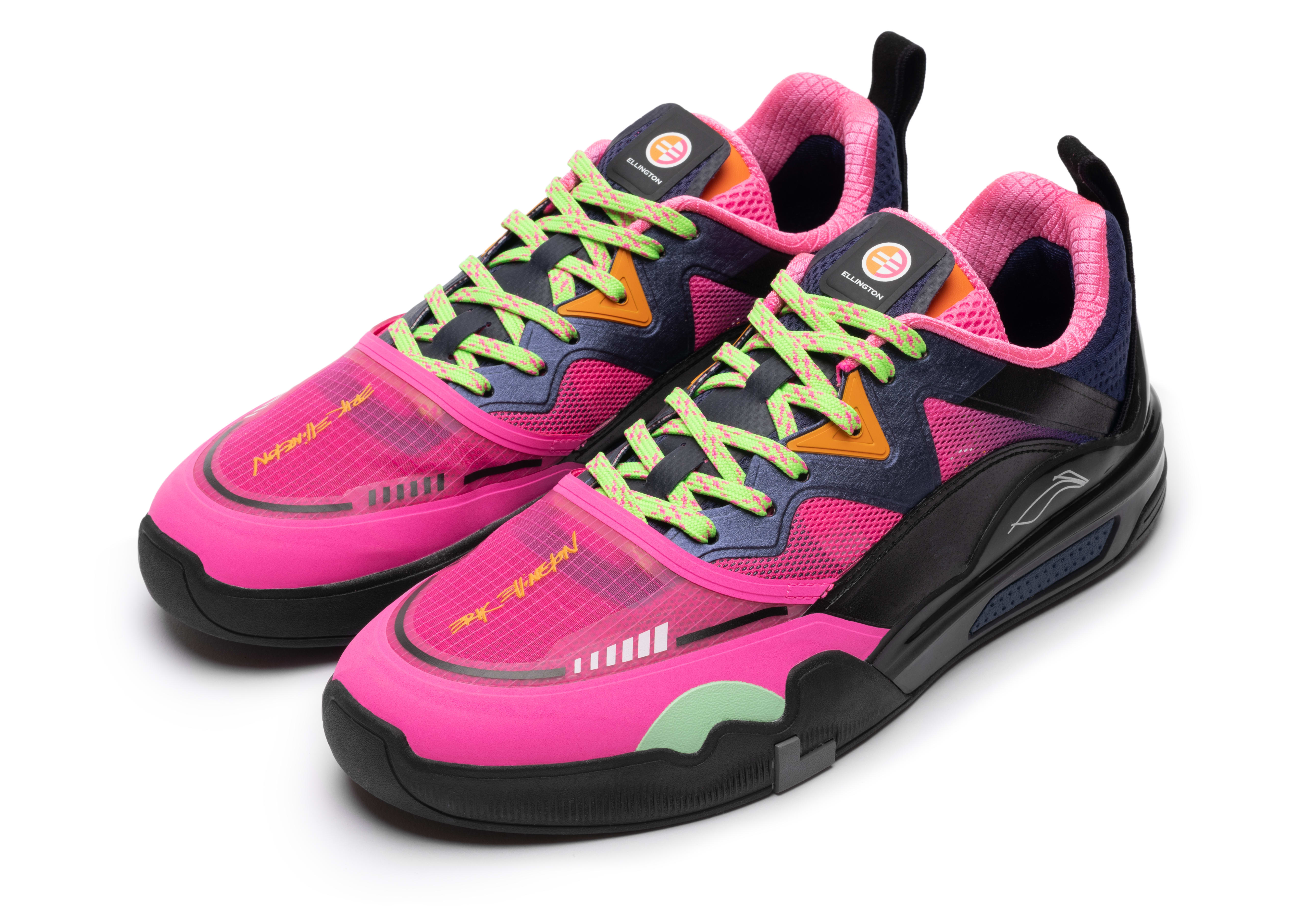
It’s a lot to cram into a single shoe, but he trusted Li-Ning’s designers to translate his hodgepodge of ideas into something both functional and innovative.
“When you’re working with a company that has the access and the resources that Li-Ning has, and you have designers that are young, hyper-creative, and wanting to just fucking push the envelope so hard, I can be like, ‘You guys do it,’ and the product they’ll come back with will be better than I would have done myself.”
The shoe that they came back with, the Ellington Signature Model, looks like nothing else for sale at your local skate shop. It is loud and high-tech, with bright colorways, 3M accents, an ultra-light “BOOM” midsole, and ripstop mesh toe cage featuring Erik Ellington’s signature across it. There are subtle nods to its skating antecedents (the double-E logo is a reflection of the one he used with Emerica), and the shoe, with its double-stuffed tongue, protected lower eyelets, and deep cupsole, seems packed with its purpose in mind. But it’d be easy to assume these were well-equipped runners or extravagant chillers if they haven’t been scuffed by the telltale signs of their intended use.
Eccentric as they are, they’re exactly what Ellington wanted.
“This shoe, to me, looks like you could have seen some of my favorite skaters back in the ‘90s rocking this,” he says, a futuristic skate shoe that wouldn’t look too out of place in the past.
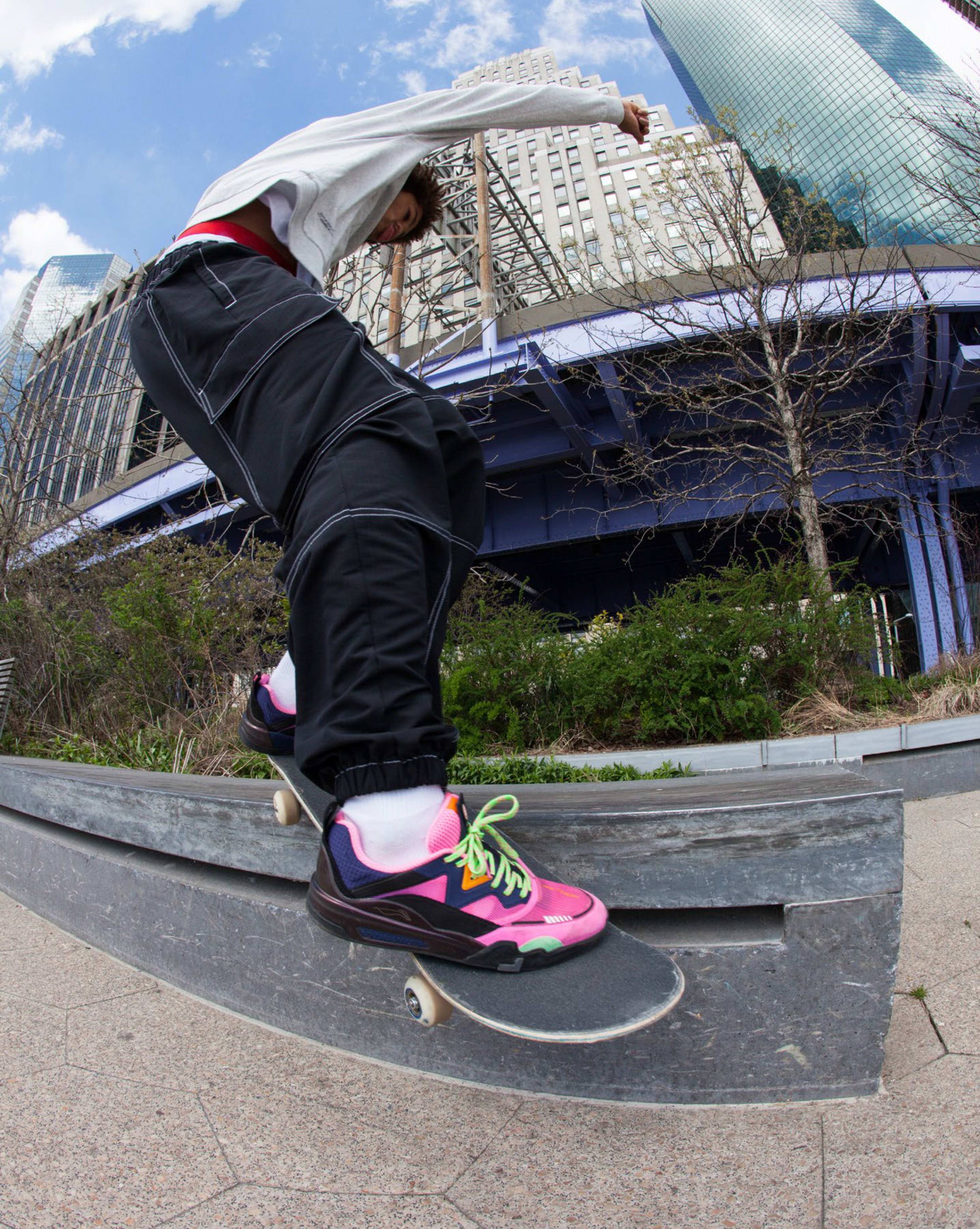
It also looks expensive, and is. Retailing between $150 and $180, the shoe’s about twice the cost of most other skate shoes.
“It’s not just something we cranked out of a conveyor belt with the cheapest materials and sent to 20,000 people,” explains Ellington. “There’s value behind it.” Whether or not that pricepoint will prove justified after a couple hundred kickflips is to be determined, but, either way, this is just the beginning of a long-term collaboration that, according to Uru, promises “additional footwear, apparel, and accessories in different price ranges dropping throughout the next months and years.”
As hands-on as Ellington was in envisioning his signature shoe’s design, he’s even more committed to making sure its release in the United States goes well. He carefully picked the six retailers (KCDC, Total Luxury Spa, Andrew Downtown, Black Sheep, Kingswell, and Humidity) that will launch the brand. He wanted to make sure brick-and-mortar skate shops got the stock at least a week before online retailers did in order to prioritize the institutions that maintain the culture of skateboarding from which Ellington comes, and Li-Ning obliged (though they say this approach “will evolve for future drops”).
Down at Humidity in New Orleans, shop owner Philly Santosuosso was happy to take a chance on the shoes despite knowing little about Li-Ning. “It’s Ellington,” he says. “Whatever he does, I’m cool with.” The two were long-time friends through skating, so Santosuosso ordered a small stock of the Astro Pop colorway. “Shit’s getting boring in the scene, so for me, I was like, ‘Well, at least this is something unique and different,’” he says. “I can take a risk on it, it’s not that many units.” The shoes sold out through their website almost instantly.
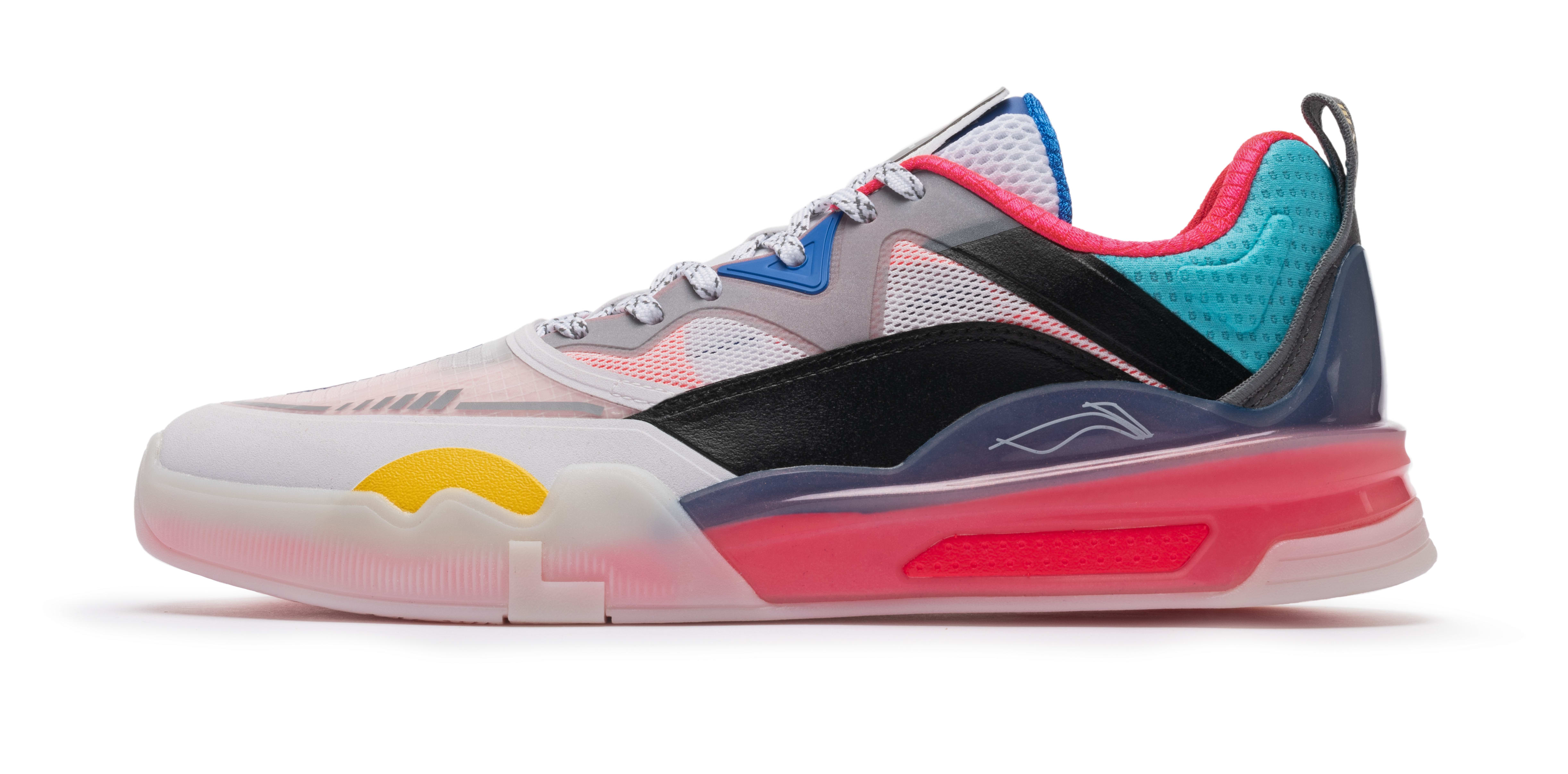
Ellington was also given as much freedom as he wanted to pick the team, though he bristled at the term.
“I don’t fault people who talk about teams,” he says. “You know, the Olympics are great, but the skateboarding I got into, and everything I’m pulling from for influences, it’s like the antithesis of a ‘team.’”
So far, the sponsored riders include Zach Allen, Davey Sayles, and Tinga Johnson. “I want friends that are able to travel well together, have fun, and also offer creative insight,” explains Ellington, “and those guys can design their own shoes, design their own clothes, model their own lookbook—they can do everything and then go out and kill it skating without an attitude or ego.”
The crew, as such, is notably non-Olympic, which might be surprising considering Li-Ning was started by one of China’s most famous Olympic gymnasts. But Li-Ning seems to appreciate that trophies mean little in establishing a skateboarding brand’s bona fides. And, anyways, other brands are working that angle: ANTA Sports is the official sportswear supplier for China’s Olympic team, at least through 2024, while China’s lone skateboarding Olympian for this year’s games wore Kappa.
Even so, there’s always the option to pivot into skateboarding’s competitive realm through future acquisitions of talent. It’s been reported that Nike and Adidas, two of the biggest corporate players in the skate shoe market, are cutting back the number of athletes they sponsor as they move away from sports marketing in favor of direct-to-consumer e-commerce. In the NBA, 70 of Nike’s 150 endorsement deals weren’t renewed over the 2020 season. Though there aren’t exact figures available in skateboarding, anecdotal evidence suggests a similar shift, with more and more mid-level athletes suddenly without a shoe sponsor. Li-Ning, should they ever decide to expand their roster, has the money and motivation to recruit aggressively. Credibility is the recurrent theme in Li-Ning’s market penetration strategy, and an easy way to gain that cachet is to get the right people to rep for you. Having Erik Ellington as their captain certainly shouldn’t hurt their pitch.
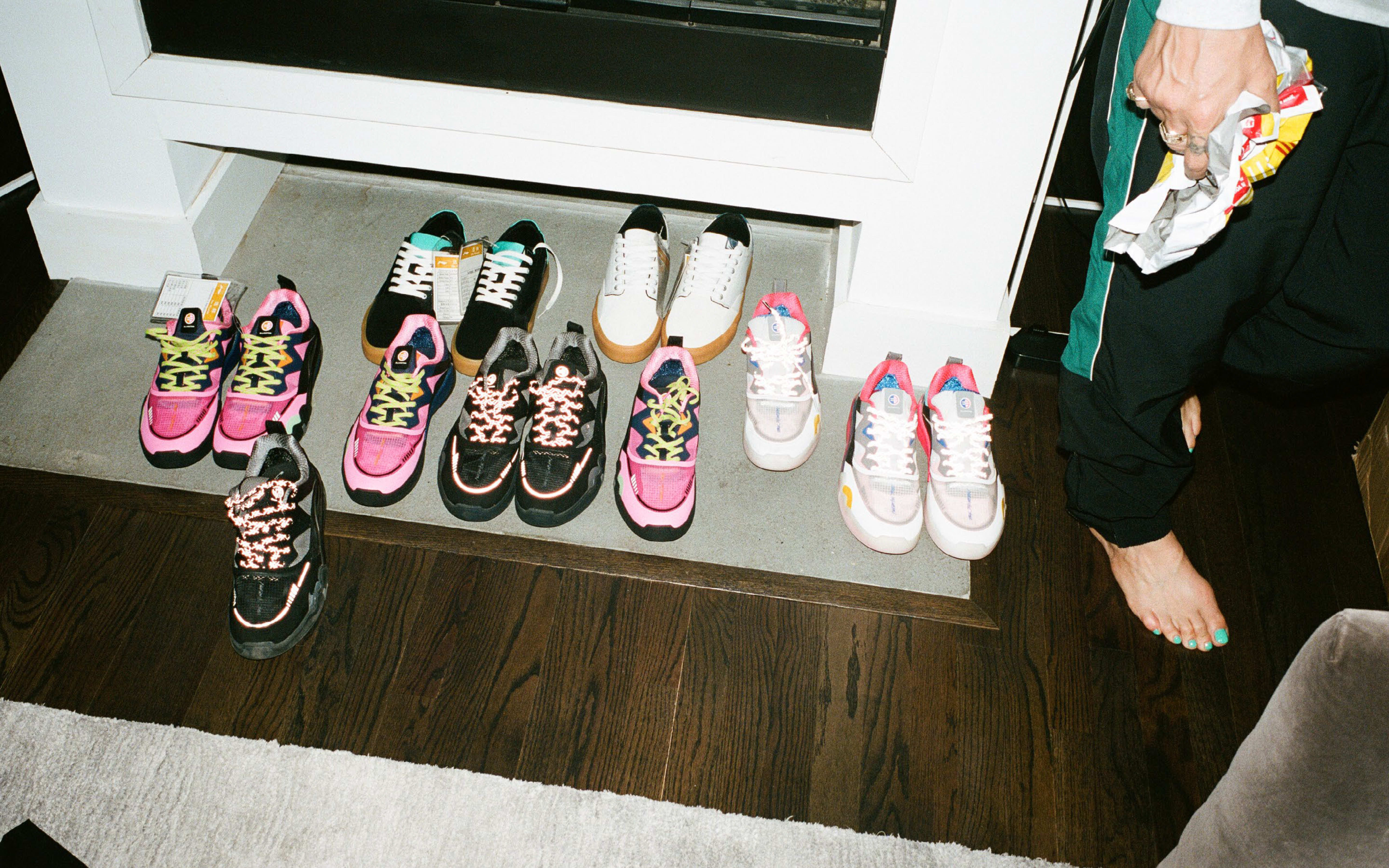
Ellington, soon to be 44 years old, is responsible for raising two kids and running three companies, but that doesn’t keep him from the thing that brought him to this point in life. “I’ll do this interview. I’ll also go pack a box—I’m not too good to do that. I’ll go design something with the crew from Li-Ning. I’ll talk to somebody at a skate shop I’m going to do the release with, and then I’ll be on a sales call with SSense,” he says. “But then I’ll go skate at the end of the day, because that’s what makes me who I am. That’s what makes me valuable.”
Li-Ning’s savviness is in engaging Ellington’s experience, energy, and influence to build its brand equity in the West and legitimize it in the eyes of the Chinese consumer, the ultimate target. For his part, Ellington is excited to contribute however he can to the development of China’s skate scene. He’s witnessed skateboarding’s growth firsthand over the past couple of decades, and the platform he’s been given to push it even further is invigorating. “To see skateparks go up and these communities form, it’s going to be cool,” he says. All the cooler if they’re decked out head-to-toe in Li-Ning, of course.

